|
She loves working with business owners on securing their assets with a plan so they can survive disruptions and thrive in the aftermath. The business will develop a business continuity plan via learning how to do tailored risk assessment and business impact analysis. Erika and her company, EaaS will then work that plan through trainings and exercise creation and facilitation to determine the plan's viability. EaaS leaves businesses better able to resume operations quickly when risk management fails.
Before I get to the 5 steps, I wanted to reference a great article from the
Daily Herald Business Section on May 5, 2022 by Jim Reynolds of Blackhawk Bank Succession Planning for Local Businesses: https://www.dailyherald.com/business/20220515/succession-planning-for-local-businesses Step 1- Business Planning (Days 0-90/ Months 0-3)
Step 2- Pre-Market Preparation (Days 90-180/ Months 3-6)
Step 3- Going to Market (Days 180-270/ Months 6-9)
Step 4- Negotiation (Days 270+/ Months 9+)
Step 5- Closing (Days 270+/ Months 9+)
The most frequent reason given by owners of a privately owned company for considering a sale includes a combination of the following:
This guide has been prepared, based on our proven knowledge and practical experience, to guide owners through the complex phases involved in a business sale. While the content within this guide is comprehensive, we have also presented in a user-friendly style. We believe that this guide can play a significant role in helping business owners like you, deal with the critical issues that will come about during the business sale process. Should you have any questions after reading this guide we would be more than pleased to discuss these with you. You will find our contact details at the end of the guide and we look forward to hearing from you! Tom Gosche Business Strategist [email protected] 630-675-8971
Congratulations, Now that you sold your business, there are reports you need to fill out for the IRS.
Form 8594 is used to report the sale and purchase of a group of assets that constitute a business. Both the purchaser and seller must file Form 8594 with their own individual income tax return. On Form 8594, the total selling price of the business is allocated to asset classes using the residual method. Form 8594 provides the IRS with the following information:
Form 8594 lists seven classes of assets. For asset acquisitions occurring after March 15, 2001, make the allocation among the following assets in proportion to (but not more than) their fair market value on the purchase date in the following order: Class I assets:
Class V assets:
Goodwill:
You should make every effort to prepare or ‘groom’ your business so it is sold successfully at the first opportunity. While the financial advisors you appoint will work with you to address issues specific to your company, there are a number of general grooming points worth considering (even before you appoint advisors) to maximize the value of your business:
Sales & Profitability: Historically, you may have been setting your prices, and thus your profit margins, at levels designed to create barriers to entry for your competition. If you are planning for a business sale your focus is likely to be short term strategies. It will be time to re-examine your market and customer base to see if higher sales and turnover levels are achievable. If the proposed sale itself is a number of years away, you should consider performing a strategic review of the entire business. Operating Costs: You should regularly review your operating expenses but this is especially so when preparing your business for sale. You need to identify avenues to reduce expenses without affecting the operational effectiveness of your business. Profit Trends: Apart from current margins, a purchaser will be looking at profit trends. Buyers are looking to see stable and steady yearly profit trends. Therefore, risky projects should be avoided and longer-term contracts that may prove to be onerous should be fully considered before acceptance. Unprofitable contracts need to be reevaluated and, if appropriate, terminated, as it is quite possible they will be detrimental to the value of your business. Management Team: The purchaser of your business will be looking to acquire a high caliber management team. It may be worth reviewing your corporate structure to ensure that job titles and role descriptions adequately reflect the contribution that your management team makes to your business. Any re-structure needs finalization well in advance of an anticipated sale. A purchaser may also want assurance that the management team is supportive of your decision to sell or at least that it is likely to stay with the business for a reasonable period post-transaction. You should consider talking to management - how cooperative will they be? You never know, they may be interested in buying the business themselves. Asset Base: Are there any assets in the business that may be of little or no interest to potential purchasers- e.g. short-term investments, under-utilized property, equipment or perhaps surplus cash? Think about realizing and removing them from the business before the sale. It is also worthwhile having all your property assets valued individually. Restructuring: If your business has more than one division, some thought should be given to restructuring it into a number of stand-alone entities and perhaps selling these separately. Any such reorganization will have potential tax implications and other complexities associated with it and it will be important to take professional advice before undertaking any such initiative. Tax Planning: Details of the various tax factors that you need to consider are set out in section 4 of this guide. Initial points to address include making sure that all your Corporation Tax, PAYE and VAT returns and payments are up to date. In addition, any tax losses that your company may have built up over the years may now have a value to the extent that they are available for use by the potential purchaser. Personal tax planning opportunities should be discussed with your tax adviser. Valuation Expectations: You must have realistic valuation expectations. Valuation is important but do not let it get in the way of securing the sale. Timing: Deciding the best time to sell your business can be a difficult decision to make. Factors to be considered when making this decision include the level of corporate activity in your industry; the state of the economy; changes in sector relevant legislation; and available tax reliefs (e.g. do you have to be a certain age to avail of certain retirement reliefs or pension planning opportunities). What is a “Typical Situation” people are in when they realize they need your help?
They are not happy with the performance of their business and need help in growing it, cutting costs, determining a solid strategy, and/or working on developing and implementing proper procedures. What is something someone might say that would lead me to think of you? I need some help, I’m losing business, I’m losing key employees, or I’m just not happy with the performance of my company. What (Specifically) do you do? I help companies develop a solid business strategy. My firm helps companies create and execute solid policies and procedures. We help effect needed change within an organization. How do you do it? My firm will generate a diagnostic of the business and determine what’s working and what needs to change or be improved. We will create a strategic plan for the business that is easy to understand. We then will help the company execute that plan, and we will provide real-time adjustments and positive feedback and direction on a daily basis. Our plan is to be able to help companies learn what they need to do to become better, get them to that point, and then give them the tools so that they con continue improving on their own. If needed, we also lend money to companies if they need working capital to make changes and improvements. Matching Ideas with Resources: What is a “Typical Situation” people are in when they realize they need your help?
Our client talks about wanting to optimize their tax and estate strategies. What is something someone might say that would lead me to think of you?
What (Specifically) do you do (3 lines Max)? Distinguished by a dual focus in both the law and taxation, we are able to provide comprehensive support with: Business Counsel & Advisory Support, Taxation Mergers & Acquisition, Trust & Estate Planning, Administration & Settlement, and Generational Wealth Planning. We approach our clients with the belief that their legal issues, no matter how big or small, deserve the personal attention of an experienced and qualified professional. How do you do it (3 Lines Max)? We retain a team of professionals with decades of experience advising across a number of circumstances and situations. We have learned that business and personal needs, goals and objectives intersect. Our approach is designed to gather the necessary information, prepare a specialized solution that meets your unique goals and circumstances, confirm your agreement and implement the plan. 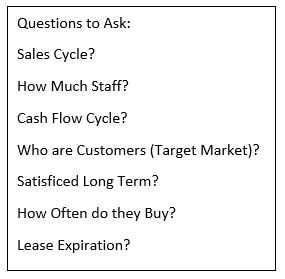 What the business may need to do
1) Work to Recast the Financials (need 2-3 years Financials)
4) Develop a list of Potential Buyers
6) Close |
GLM's BlogIn true blog fashion, the last parts are at the top of the page. Scroll all the way down and work your way back up to read them in order.
Tom GoscheTom is the Business Development Manager for GLM. If you are interested in learning more about GLM's services, contact him: 630-675-8971
[email protected] Archives
July 2024
Categories
All
|
||||||


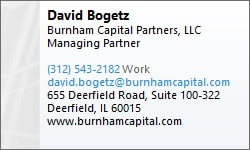
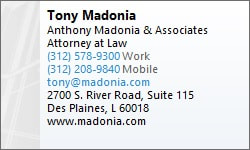
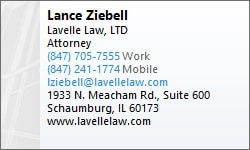
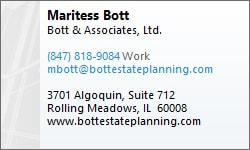


 RSS Feed
RSS Feed


